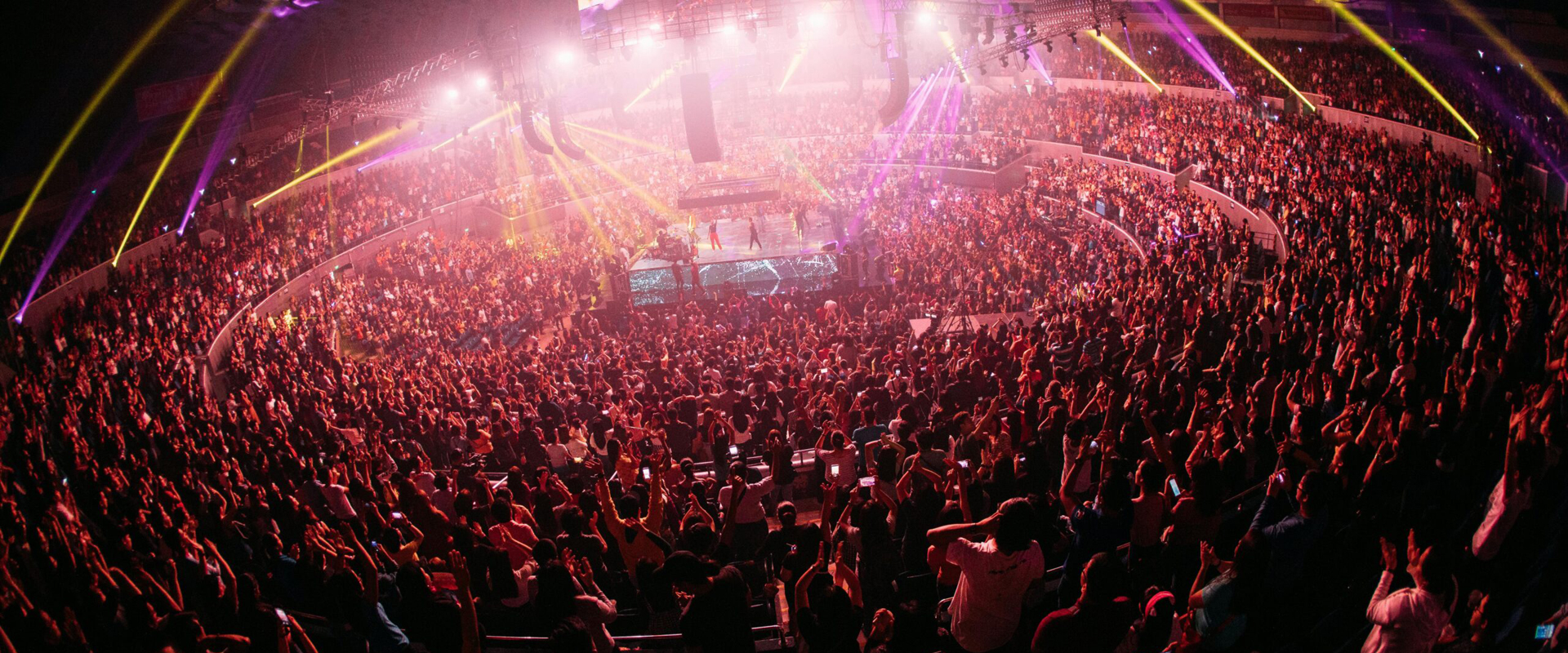Live Nation Faces Shifting Trends Despite Blockbuster Summer Profits
Live Nation Entertainment (LNE), one of the leading global companies in the live entertainment sector, continues to report impressive financial results, bolstered by its “most active summer concert season ever”. Yet, a deeper analysis of its 2024 Q3 earnings suggests the company may need to rethink its strategy as growth increasingly relies on rising ticket prices rather than selling more tickets.
Revenue for Q3 2024 dropped 6%, totaling $7.7 billion compared to $8.2 billion in Q3 2023. Concert revenue fell by 6% ($6.6 billion vs. $7 billion), and ticketing revenue saw a sharper 17% decline ($694 million vs. $838 million). Despite this, total adjusted operating income (AOI) increased by 4% to $910 million, driven by a 39% year-over-year boost in concert AOI ($474 million) and a 10% rise in sponsorship and advertising ($275 million). However, ticketing AOI declined by 33%, from $352 million to $236 million.
While Live Nation reported a 3% increase in ticket sales and global fan attendance during the first three quarters of 2024, stadium show attendance fell by 30% in Q3, signaling a notable shift in consumer preferences. Growth was strongest at lower-capacity venues like arenas and amphitheaters, continuing a trend noted in midyear reports.
The company also revealed that 95% of its shows don’t sell out, leaving approximately 35 million unsold tickets globally. While revenue and AOI for 2024 (the adjusted operating income margin is a financial metric that shows the difference between adjusted operating income and net sales) have grown by 3% and 13%, respectively, the overall financial growth is slowing.
LNE’s strategy of raising ticket prices to compensate for flatlining attendance is showing diminishing returns. Critics argue that this approach risks alienating fans and could limit access to live events. An alternative strategy could involve investing in smaller venues to align with the growing demand for more intimate concerts. Venue Nation, Live Nation’s venue operations division, appears to be part of this shift. On-site spending at its venues has risen significantly, and the company expects these spaces to host 60 million fans in 2024, up 8% from 2023. With 80 new venues planned and $3 billion earmarked for acquisitions, Live Nation seems poised to adapt to the changing landscape.
Market trends also highlight Gen Z’s growing influence. According to a Luminate survey, Generation Z ( the demographic cohort succeeding Millennials and preceding Generation Alpha) surpassed Millennials in concert spending and attendance for the first time this year, favoring arenas and amphitheaters over stadiums and festivals.
“We have a larger lineup of stadium and amphitheater shows for fans to enjoy in 2025” CEO Michael Rapino stated, emphasizing the company’s plans to expand infrastructure and reach untapped fan bases.
However, Live Nation’s growing focus on smaller venues could intensify competition with struggling independent operators, potentially reshaping the live music industry further. The question remains: Can Live Nation sustain its dominance while adapting to these new dynamics?
Source: Variety VIP
Share:
Live Nation Entertainment (LNE), one of the leading global companies in the live entertainment sector, continues to report impressive financial results, bolstered by its “most active summer concert season ever”. Yet, a deeper analysis of its 2024 Q3 earnings suggests the company may need to rethink its strategy as growth increasingly relies on rising ticket prices rather than selling more tickets.
Revenue for Q3 2024 dropped 6%, totaling $7.7 billion compared to $8.2 billion in Q3 2023. Concert revenue fell by 6% ($6.6 billion vs. $7 billion), and ticketing revenue saw a sharper 17% decline ($694 million vs. $838 million). Despite this, total adjusted operating income (AOI) increased by 4% to $910 million, driven by a 39% year-over-year boost in concert AOI ($474 million) and a 10% rise in sponsorship and advertising ($275 million). However, ticketing AOI declined by 33%, from $352 million to $236 million.
While Live Nation reported a 3% increase in ticket sales and global fan attendance during the first three quarters of 2024, stadium show attendance fell by 30% in Q3, signaling a notable shift in consumer preferences. Growth was strongest at lower-capacity venues like arenas and amphitheaters, continuing a trend noted in midyear reports.
The company also revealed that 95% of its shows don’t sell out, leaving approximately 35 million unsold tickets globally. While revenue and AOI for 2024 (the adjusted operating income margin is a financial metric that shows the difference between adjusted operating income and net sales) have grown by 3% and 13%, respectively, the overall financial growth is slowing.
LNE’s strategy of raising ticket prices to compensate for flatlining attendance is showing diminishing returns. Critics argue that this approach risks alienating fans and could limit access to live events. An alternative strategy could involve investing in smaller venues to align with the growing demand for more intimate concerts. Venue Nation, Live Nation’s venue operations division, appears to be part of this shift. On-site spending at its venues has risen significantly, and the company expects these spaces to host 60 million fans in 2024, up 8% from 2023. With 80 new venues planned and $3 billion earmarked for acquisitions, Live Nation seems poised to adapt to the changing landscape.
Market trends also highlight Gen Z’s growing influence. According to a Luminate survey, Generation Z ( the demographic cohort succeeding Millennials and preceding Generation Alpha) surpassed Millennials in concert spending and attendance for the first time this year, favoring arenas and amphitheaters over stadiums and festivals.
“We have a larger lineup of stadium and amphitheater shows for fans to enjoy in 2025” CEO Michael Rapino stated, emphasizing the company’s plans to expand infrastructure and reach untapped fan bases.
However, Live Nation’s growing focus on smaller venues could intensify competition with struggling independent operators, potentially reshaping the live music industry further. The question remains: Can Live Nation sustain its dominance while adapting to these new dynamics?
Source: Variety VIP









